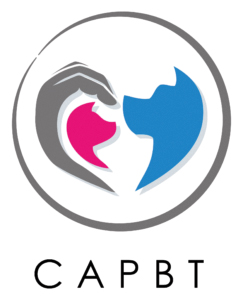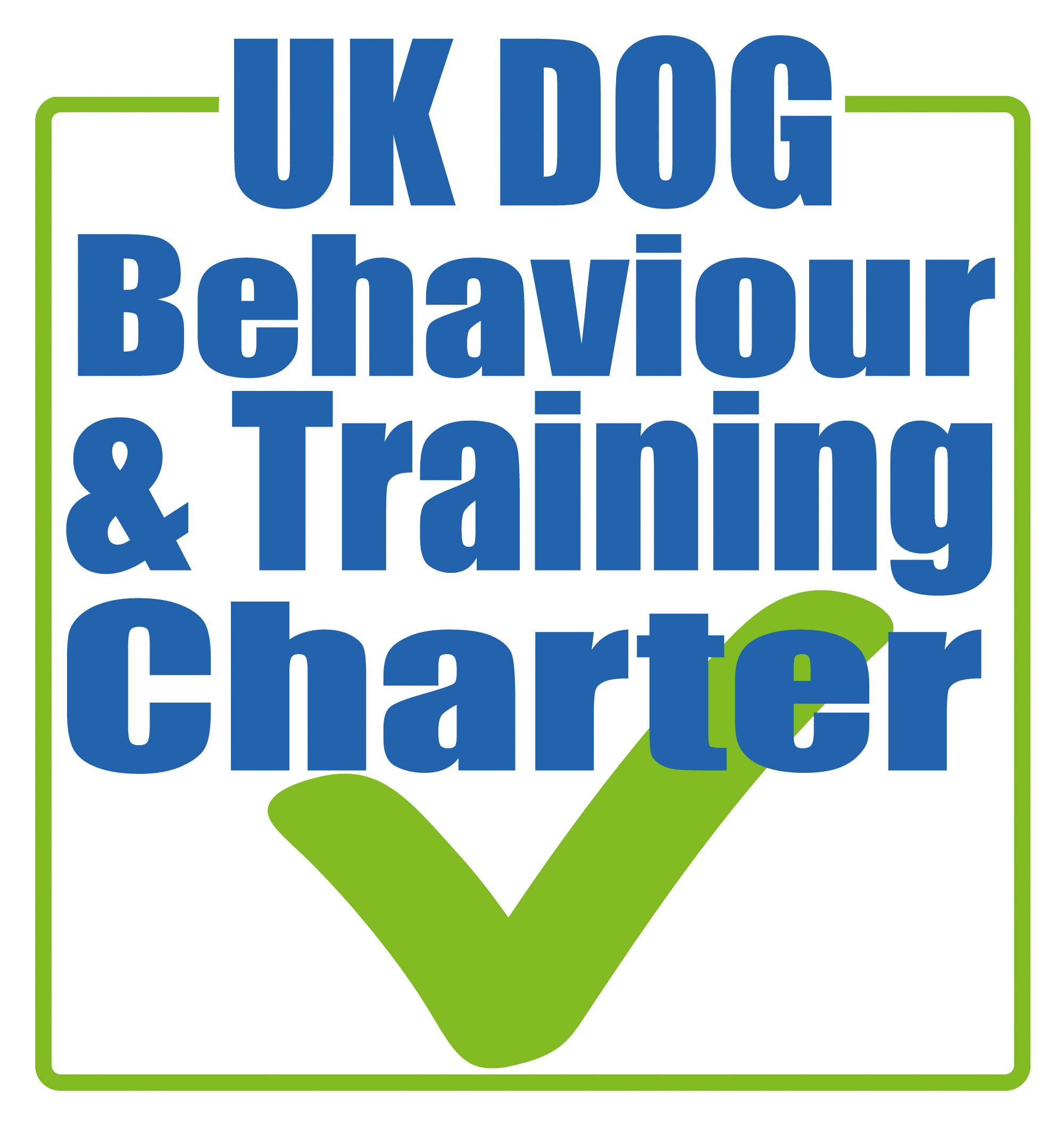Doing things differently, and putting the dog’s emotions at the centre of everything has been key to the success of the COAPE Association of Pet Behaviourists and Trainers.
This series looks in detail at the nine training and behaviour organisations that make up the founder members of the UK Dog Behaviour and Training Charter group, which aims to bring the professions together for the benefit of dogs and dog owners.


While every single one of these organisations ensures their members adhere to the highest standards, and work using the most up-to-date, science-based, positive methodology, each one is also individualistic in its character, the members it attracts, and the way it works. This month we talk to the current chair of CAPBT, Lorna Winter, to find out more about the organisation, its people, and the work they do.

CAPBT practitioners focus on the emotional state of a pet .
Q: What do the initials CAPBT stand for?
LW: “CAPBT stands for COAPE Association of Pet Behaviourists and Trainers. This means that we are the organisation for all graduates of the COAPE Diploma, and we only accept new members who are COAPE Diploma qualified; COAPE stands for the Centre of Applied Pet Ethology.”
Q: When did CAPBT start?
LW: “Well, it’s quite funny really, as even the founder of CAPBT is not entirely sure exactly when it started, as it’s been around quite a long time — definitely since about 2005/2006, and possibly a few years earlier, but the ‘Prof’ couldn’t quite recall.
“The ‘Prof’ as we call him (Professor Peter Neville) established COAPE way back in 1993, and then started CAPBT to help graduates connect with each other, support each other, and continue to learn through ongoing CPD. They started out being managed together under COAPE,
but once the numbers started to grow, it was logical to separate the two, so they could each focus on their core areas of expertise: COAPE in providing outstanding pioneering education, and CAPBT in being the support network for professionals, and ongoing learning.”
Q: What makes the COAPE training different to that offered by other behaviour organisations?
LW: “COAPE has been doing things differently for a very long time and was the first educational organisation in the behaviour industry to put emotions at the heart of everything they did. The foundations of the diploma are very much rooted in the science of Jaak Panksepp (who was featured in the August 2019 issue of Your Dog) and COAPE took that science and applied it to pet behaviour, becoming true pioneers in the industry. COAPE also developed the Emotional, Mood State and Reinforcement Assessment (EMRA) system of working back in 2004, which underpins the whole methodology that our practitioners use.”
Q: How do CAPBT practitioners work?
LW: “CAPBT practitioners typically work using vet referral as it’s critical to rule out pain first before putting together any behaviourial plan, and our practitioners will work very closely with their clients’ vets to build plans that are taking a fully holistic view of the animal. Our practitioners follow the EMRA approach, with core focuses on the emotional state of the pet.”
Q: Tell me a bit about EMRA and why it is important.
LW: “We know that behaviour is a symptom of the dog’s mood state. We start with a full emotional assessment, a mood assessment, and then we look at the hedonic budget — in other words how the dog is spending his day compared to how he should be spending his day to see where the deficits (or sometimes excesses) are. Using these tools gives our practitioners a consistent approach, rooted in the latest science, which puts the dog’s emotions at the core of everything they do.”
Q: What makes CAPBT special?
LW: “Our way of working is both consistent and unique; our members have been putting emotions at the core of their work for a very long time. Knowing we have made positive impacts on dog and owner relationships for almost 30 years is just a wonderful thing to be a part of.
“Very often, a CAPBT practitioner will be the ‘last resort’ for many pet owners who have tried other people (sometimes multiple ‘others’). I truly believe the strength our practitioners have is incredible, as they often deal with very tough and emotionally hard cases. It’s a strong testament to their levels of expertise and knowledge that they are able to help these cases, and more often than not, prevent euthanasia or rehoming.”
Q: What have been the highlights for COAPE/CAPBT?
LW: “Core has been the pioneering approach, using the science of Panksepp to build the foundation of our methodology, and then putting that into a very clear and easy framework. More recently, our global expansion has been really exciting; COAPE and CAPBT have gone truly international with members all over the globe, spreading the word of EMRA and positive reinforcement methods.”
Q: What kinds of dogs and owners does the work done by CAPBT particularly help?
LW: “Our practitioners can deal with any behaviourial issue, small or big, it really doesn’t matter. When we’re looking at the bigger picture, taking all the holistic elements into view, and the animals’ emotions to understand the ‘why’ instead of focusing on the ‘what’, it means that we can help all dogs and owners with all types of problems.”

CAPBT practitioners focus on the emotional state of a pet .
Q: Why did CAPBT want to be a part of the Charter group?
LW: “Our mission is to ensure we can help as many pet owners as possible, to provide happy relationships for everyone, improving welfare as much as we can along the way.
“Because the industry is currently completely unregulated, this makes it really difficult for pet owners to know who to trust with their beloved pets.
“Outdated TV shows on repeat, social media, and the worldwide web, have made it more and more difficult for pet owners to navigate in this space, as everyone out there says they are: ‘The Only No.1 Dog Trainer’ or something similar — but who can owners really trust? There are about 100 different ‘organisations’ all pretty much saying the same things; it was time to do something about it.
“At CAPBT, we feel that the industry needs to work together on this, put aside the internal politics and backbiting that have held us all back in previous years, and do what’s RIGHT for owners and dogs. It’s time for us all to stop thinking internally about our own businesses and focus externally on the needs of dogs and their owners and how we as an industry can make life better for them all.
“For me, this is exactly what the Charter is all about — taking ownership of the industry together, putting dogs’ welfare at the heart of everything we do, ensuring it’s easy for dog owners to know who to trust, and provide a symbol of quality for them.
I also believe the Charter is the way for us all to build the future of this industry, working with welfare at its heart, and finally moving it forward into the 21st century.”

The CAPBT aims to help as many owners as possible to have a happy relationship with their pets.
Q: How many accredited professionals does CAPBT have in the UK? And how can owners find them?
LW: “We have around 200 current members, and around 80 per cent of these are currently in the UK, although in this day and age with technology, location is not
a barrier to who you can work with.
“Our practitioners can do excellent consultations and assessments remotely, as they are better able to see the dog’s natural behaviour and, therefore, it’s often much quicker to get to the root of the issues and develop a clear plan for the owners.
“So, don’t let location be a barrier, and if you need help with your dog, just pop along to CAPBT.org and go to our ‘Find a behaviourist’ section.”







